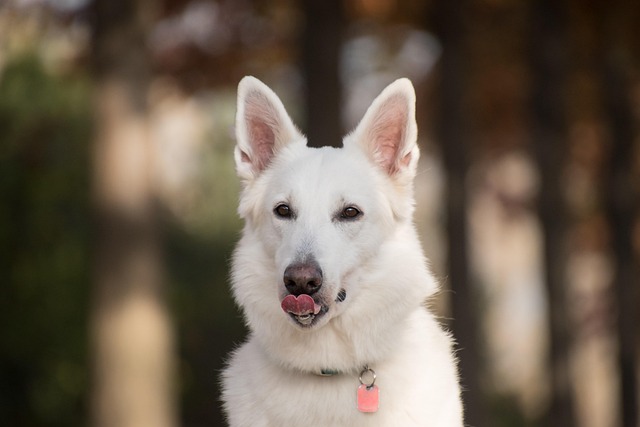
How can I tell if my dog's heatstroke is serious
Let’s be real: It’s a sticky August morning in Los Angeles, and you took your 2-year-old Golden Retriever, Max, for a walk a little later than usual
Most dog owners notice their pup’s stinky breath now and then, but few realize it could signal bigger issues. Brushing your dog’s teeth regularly isn’t just about fresh kisses—it’s a key part of preventing gum disease, which can lead to tooth loss or even organ damage over time. For most adult dogs, a good rule of thumb is to brush their teeth at least 2-3 times a week; some vets even recommend daily sessions for breeds prone to dental problems, like Pugs or Shih Tzus.
Keep in mind that consistency matters more than perfection. If your dog resists at first, start with short, positive sessions—try rubbing their teeth with a finger wrapped in gauze before moving to a dog-specific toothbrush. Never use human toothpaste, as it contains ingredients like xylitol that are toxic to dogs. Many pet stores carry flavored toothpastes that make the process easier for both of you.
It’s also important to tie dental care to local regulations. In some European countries, like Germany, regular pet health checkups (which often include dental assessments) are required by law to ensure animals stay in good condition. Even in places without strict mandates, neglecting your dog’s teeth could lead to costly vet bills down the line, and some pet insurance providers might not cover issues linked to poor dental hygiene.
 Watching for signs of trouble can save you and your dog stress. If you notice red, swollen gums, bleeding while eating, or your dog avoiding hard toys, it’s time to schedule a vet visit. These symptoms might mean early-stage gum disease, which is much easier to treat than advanced cases. Your vet can also show you proper brushing techniques and suggest dental chews or diets that support oral health—just make sure any products you use meet safety standards set by organizations like the FDA or EU’s Pet Food Regulation.
Watching for signs of trouble can save you and your dog stress. If you notice red, swollen gums, bleeding while eating, or your dog avoiding hard toys, it’s time to schedule a vet visit. These symptoms might mean early-stage gum disease, which is much easier to treat than advanced cases. Your vet can also show you proper brushing techniques and suggest dental chews or diets that support oral health—just make sure any products you use meet safety standards set by organizations like the FDA or EU’s Pet Food Regulation.
Ending each week with a dental care routine can become a bonding moment too. Many dog owners find that brushing their pup’s teeth while watching TV or after a walk helps turn it into a habit, not a chore. Over time, your dog will learn to associate the process with attention and treats, making future sessions smoother. Remember, a little effort now goes a long way in keeping your dog’s smile bright and their health intact.
Taking care of your dog’s teeth isn’t just a nice-to-have—it’s a responsibility that ties into being a thoughtful pet owner. By sticking to a regular brushing schedule, using safe products, and staying on top of vet checkups, you’ll help your furry friend live a longer, healthier life. Plus, you’ll get to keep those slobbery, fresh-smelling kisses for years to come.

Let’s be real: It’s a sticky August morning in Los Angeles, and you took your 2-year-old Golden Retriever, Max, for a walk a little later than usual

You're enjoying a summer afternoon at the park when you notice your dog has stopped panting and appears disoriented - their gums are bright red

Let’s paint the picture: You’re in your Denver apartment, watching your 4-year-old Boston Terrier, Ruby, plop down mid-play session with her favorite toy

Many dog owners notice their pets nails seem shorter after regular walks,but how much does this daily activity actually help?The answer depends on where you walk—concrete sidewalks or asphalt streets gently file nails as a dog's paws hit the ground

Most dog owners notice their pup scooting across the carpet at some point, but few connect it to impacted anal glands. These small sacs near a dog’s rectum secrete a scent for marking territory

Most vets agree that regular dog teeth cleaning is key to avoiding painful dental issues later. For healthy adult dogs, a professional cleaning at the vet’s office every 12 to 18 months usually works well.